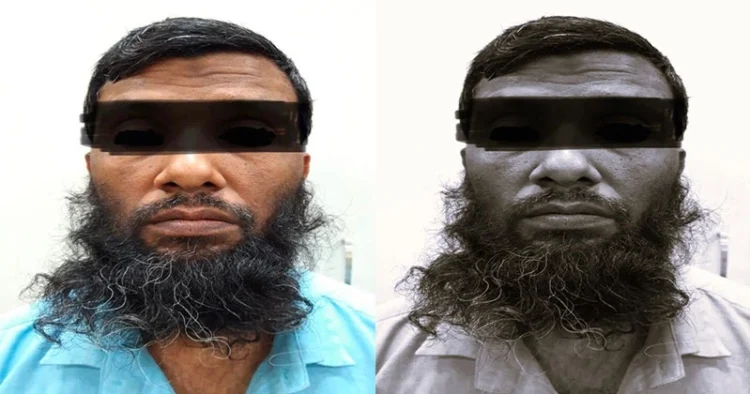West Bengal, India: On March 30, the Calcutta High Court granted bail to an alleged member of the banned terrorist organisation Jamaat-ul-Mujahideen Bangladesh (JMB). The accused Manirul Islam was arrested under various provisions of the Explosive Substances Act, the Indian Penal Code (IPC) and the Unlawful Activities (Prevention) Act (UAPA) in 2019.
The Court granted the accused bail stating, “we are of the view his continued detention would amount to infraction of his fundamental right to speedy justice and he is entitled to bail,” in view of the slow progress of his trial and being incarcerated for over four years. It is pertinent to note that the co-accused pleaded guilty before the Court and were sentenced to five years and nine months imprisonment on the same charges.
In 2019, the Special Task Force (STF) arrested the accused in connection to the Burdwan Blast case where an explosion was reported at Khagragarh in West Bengal’s Burdwan district on October 2, 2014. Two JMB operatives were killed in the blast while the third suffered serious injuries. The Kolkata Police said, “Manirul Islam aged 42 years hailing from Raghunathganj in Murshidabad District of West Bengal was arrested from Kolkata’s APC Road on Friday evening,” WION reported in 2019.
The STF officers revealed that the accused was an active JMB member since 2010 and he used to visit Mokimnagar Madrasa frequently and allegedly recruited locals to radicalise them. The recruits were later imparted arms training in the same Madrasa, WION reported.
The accused was charge-sheeted u/s 120B (Punishment of criminal conspiracy) and 130 (Aiding escape of, rescuing or harbouring such prisoner) of the IPC, u/s 5 (Punishment for making or possessing explosives under suspicious circumstances) and 6 (Punishment of abettors) of the Explosive Substances Act and u/s 18 (Punishment for conspiracy, etc.) and 20 (Punishment for being a member of terrorist gang or organisation) of the UAPA.
Furthermore, the accused was an alleged member of the banned terrorist organisation JMB which was banned on May 23, 2019, after he was arrested. However, the accused argued that he was not a member of the JMB as the organisation was banned after his arrest.
The State’s counsel opposed the accused’s bail and submitted that the accused was “a member of a banned organisation and a laptop was recovered from his possession.”
The Court said, “JMB was notified as a banned organization on 23.05.2019. Petitioner had been already arrested by then. It cannot be said that he voluntarily continued as a member of the said organisation after the same had been declared unlawful. This issue may be thrashed out during trial but the petitioner is in custody for more than four years.”
Furthermore, the Court observed that “There is little possibility of trial concluding in the near future,” taking into account the slow progress of the trial and as only one witness had been examined in full and another in part.
The Court held, “Under such circumstances, we are inclined to grant bail to the petitioner,” and imposed the following conditions on his bail:
- We direct that the petitioner shall be released on bail upon furnishing a bond of Rs.25,000/- with two sureties of like amount each, one of whom must be local, to the satisfaction of the learned Chief Judge, City Sessions Court, Calcutta.
- While on bail the petitioner shall remain within the jurisdiction of the Municipal limits of Kolkata.
- He shall provide the address where he shall presently resides to the investigating officer as well as the court.
- He shall report to the Officer-in-Charge of the concerned police station within whose jurisdiction he shall presently reside once in a week.
- He shall appear before the trial court on every date of the hearing.
- He shall not intimidate the witnesses and/or tamper with evidence in any manner whatsoever.
Furthermore, the Court said, “In the event the petitioner fails to comply with the aforesaid conditions without justifiable cause, the trial court shall be at liberty to cancel his bail in accordance with law without further reference to this Court.”




















Comments